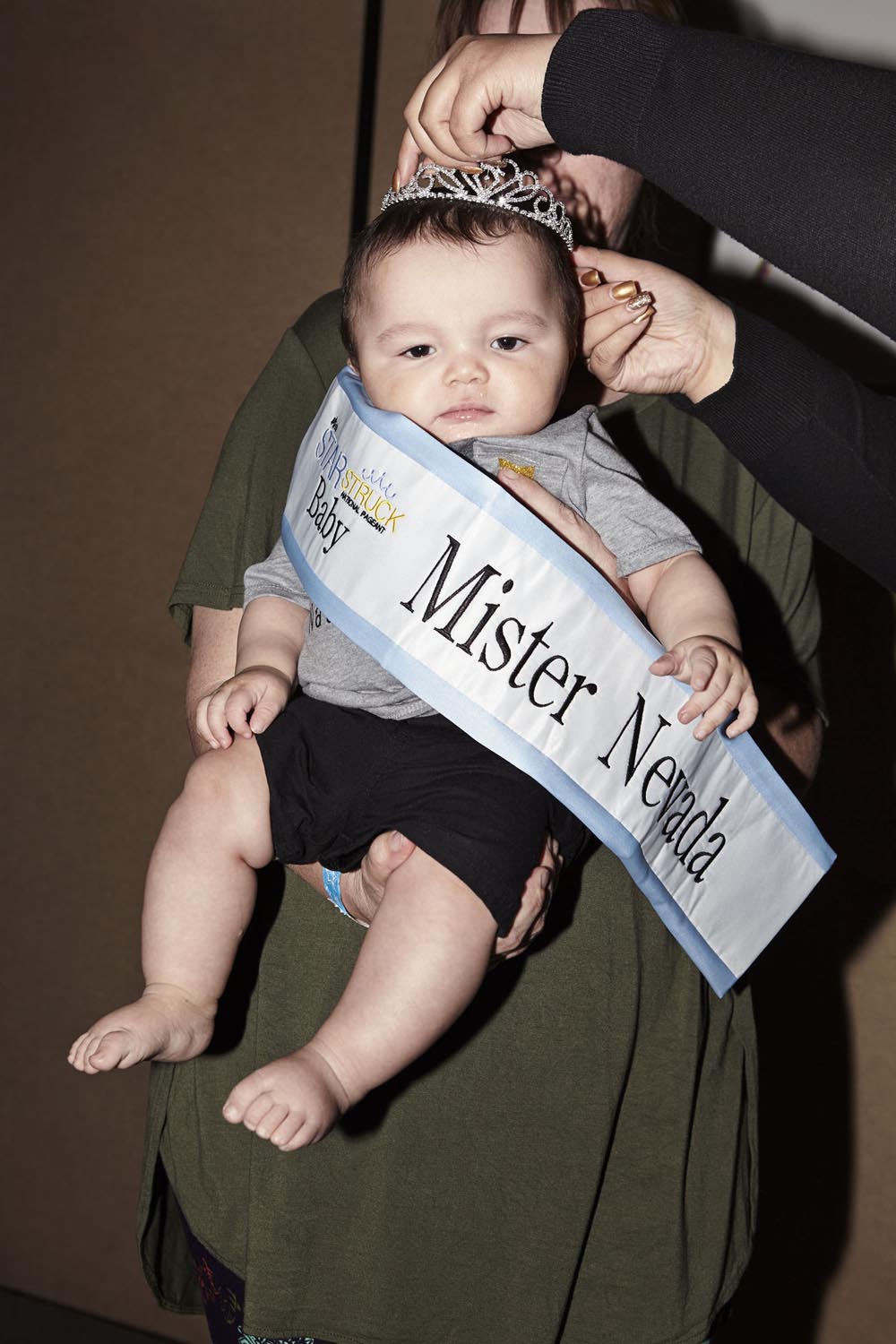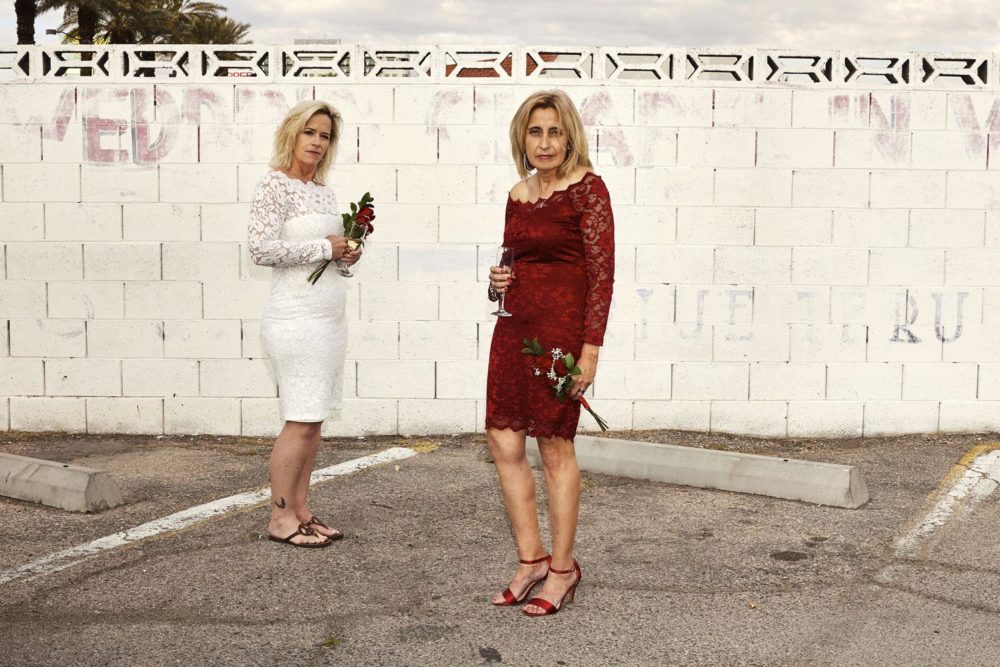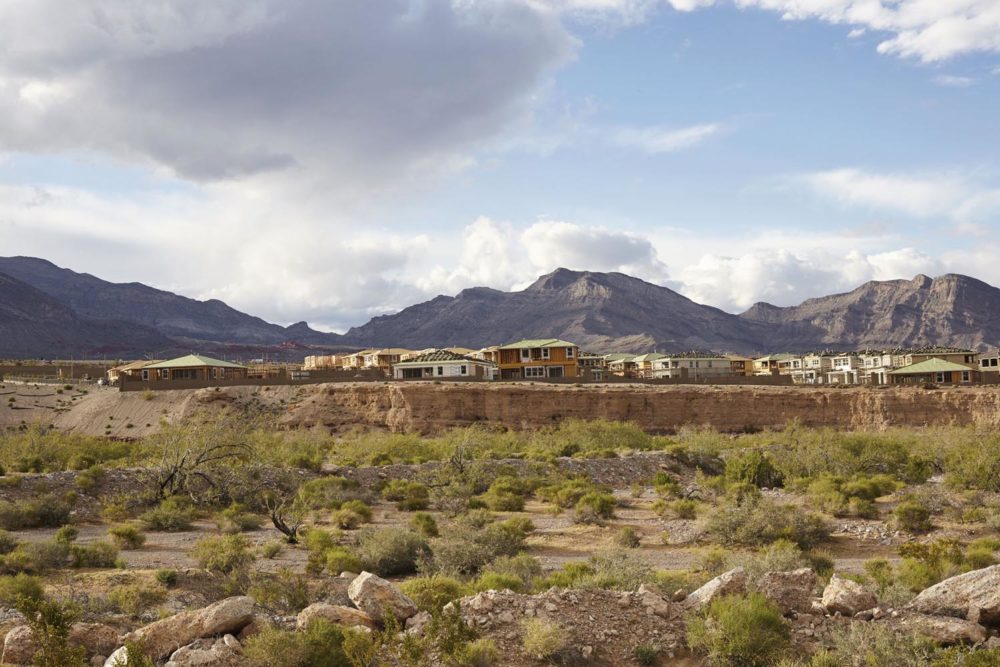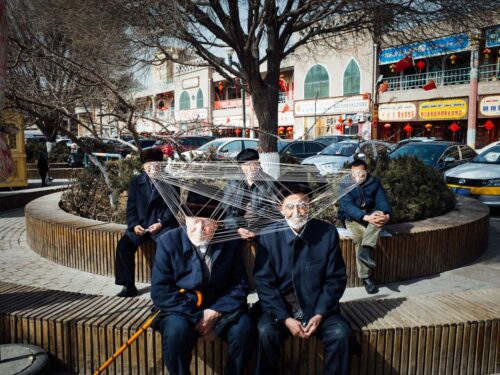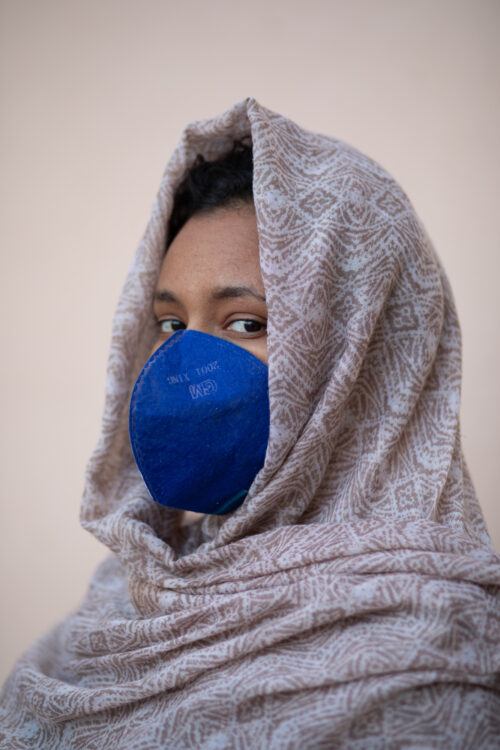Picture Series
Hayley Austin The Springs
When she was eight years old, photographer Hayley Austin spent the summer in her grandparents’ air-conditioned gem in Las Vegas – in a neighbourhood where the streets are named for Italian villages. This city, once supplied with water by subterranean springs and named after green meadows, is now a city of dreams cemented with desert sand, a symbol of quick fame. Many come to the desert metropolis and hope that hard work will lead to a good job and a home of their own, or at least that they will be able to take a break from everyday life. However, poverty and homelessness are on the rise in Las Vegas. No other American city has a greater difference in life expectancy between rich and poor. Hayley Austin draws a picture of a society of exuberant optimists and suntanned, weary people who admit that the American Dream is as dry as the springs that once made Las Vegas green.
- Artificiality
- Beauty
- Optimisation
- Play
- USA
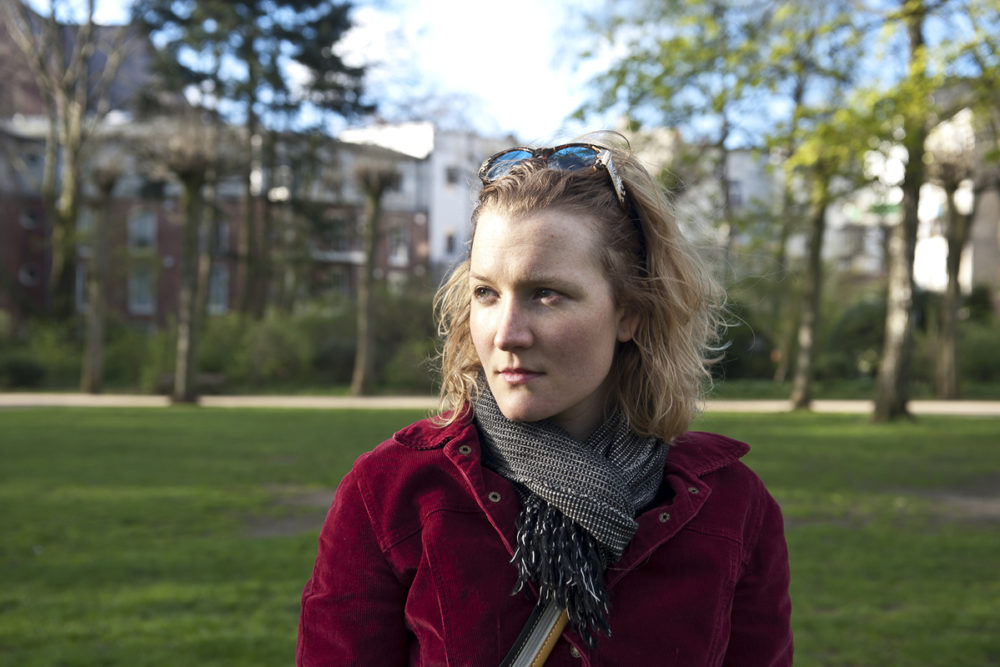
*1984 in Fort Worth, USA
In 2015, Hayley Austin completed her studies with a master’s degree of Photography from Bielefeld University of Applied Sciences. Since then, she has lived in Hamburg and worked as a freelance photographer and picture editor. The main focus of her work is portrait photography and people’s relationships with their surroundings. Austin’s photography has been shown in the USA and Europe.














